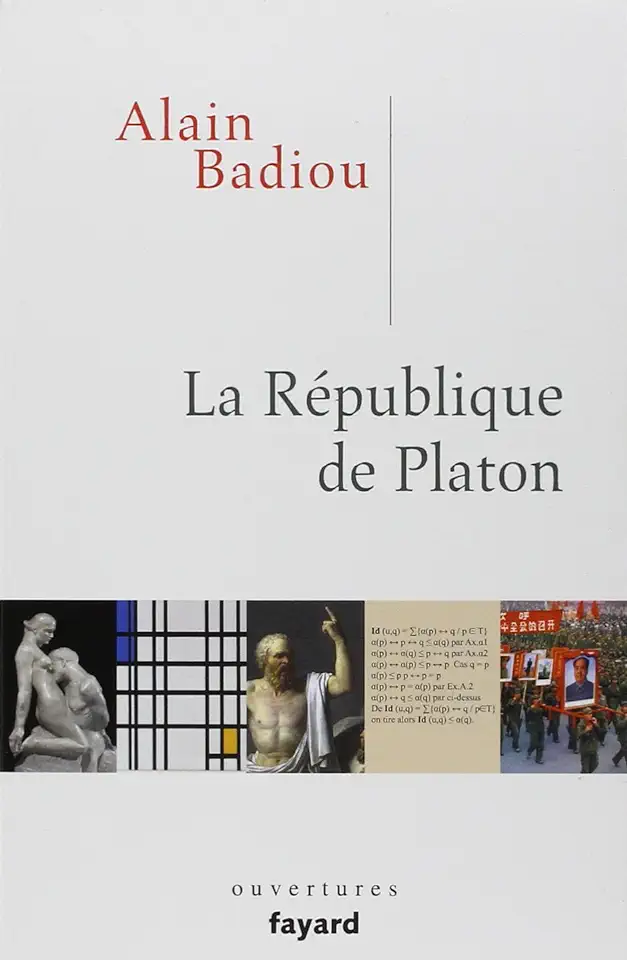
The Republic - Plato
The Republic: A Timeless Exploration of Justice, Virtue, and the Ideal State
Plato's "The Republic" stands as a towering masterpiece of Western philosophy, inviting readers to embark on a profound journey of intellectual inquiry into the nature of justice, virtue, and the ideal state. Written in the form of a dialogue between Socrates and various interlocutors, this seminal work delves into the fundamental questions that have captivated philosophers for millennia.
A Quest for the Just and Virtuous Society
At the heart of "The Republic" lies Socrates' relentless pursuit of the essence of justice. Through a series of thought-provoking exchanges, he challenges conventional notions of morality and explores the intricate relationship between individual virtue and the well-being of society. Plato argues that a just society can only be achieved when its citizens embrace virtue and wisdom, and when the state is governed by philosopher-kings who possess both knowledge and moral integrity.
The Allegory of the Cave: Unveiling the Truth
One of the most iconic passages in "The Republic" is the Allegory of the Cave, a powerful metaphor that illustrates the human condition and the pursuit of truth. Plato depicts a group of prisoners chained in a cave, facing a wall and only able to see shadows projected by a fire behind them. These shadows represent the limited perceptions and beliefs that often confine our understanding of reality. Socrates suggests that true knowledge can only be attained by breaking free from these chains and venturing into the realm of ideas, where the Forms of justice, beauty, and other abstract concepts reside.
The Guardians of the Ideal State
Plato envisions an ideal state governed by philosopher-kings, individuals who have dedicated their lives to the pursuit of wisdom and virtue. These guardians are carefully selected and educated to possess the qualities necessary for just and effective leadership. Plato argues that only those who have transcended personal desires and attained a deep understanding of the Forms can truly govern in the best interests of society.
The Role of Education in Shaping the Soul
Education plays a pivotal role in Plato's ideal state. He emphasizes the importance of a comprehensive curriculum that cultivates both intellectual and moral development. Music, literature, mathematics, and philosophy are essential subjects that shape the souls of citizens, instilling in them a love for truth, beauty, and justice. Plato believed that education is the key to creating virtuous individuals and a harmonious society.
The Harmony of the Soul and the State
Plato draws parallels between the individual soul and the ideal state, suggesting that both must achieve a state of balance and harmony to flourish. Just as the soul is composed of three parts – reason, spirit, and appetite – so too is the state divided into three classes: the guardians, the auxiliaries, and the producers. Each class has its specific role to play, and when all three work in harmony, the state achieves its highest potential.
The Enduring Legacy of "The Republic"
"The Republic" has left an indelible mark on Western thought, influencing countless philosophers, political theorists, and leaders throughout history. Its exploration of justice, virtue, and the ideal state continues to resonate with readers, inspiring them to question their own beliefs and strive for a more just and harmonious society.
Why You Should Read "The Republic"
Plato's "The Republic" is a must-read for anyone seeking to deepen their understanding of the fundamental questions that shape human existence. Its profound insights into justice, virtue, and the nature of the ideal state offer timeless wisdom that remains relevant to this day. Whether you are a philosopher, a political scientist, or simply a curious individual seeking intellectual enrichment, "The Republic" promises an intellectually stimulating and transformative reading experience.